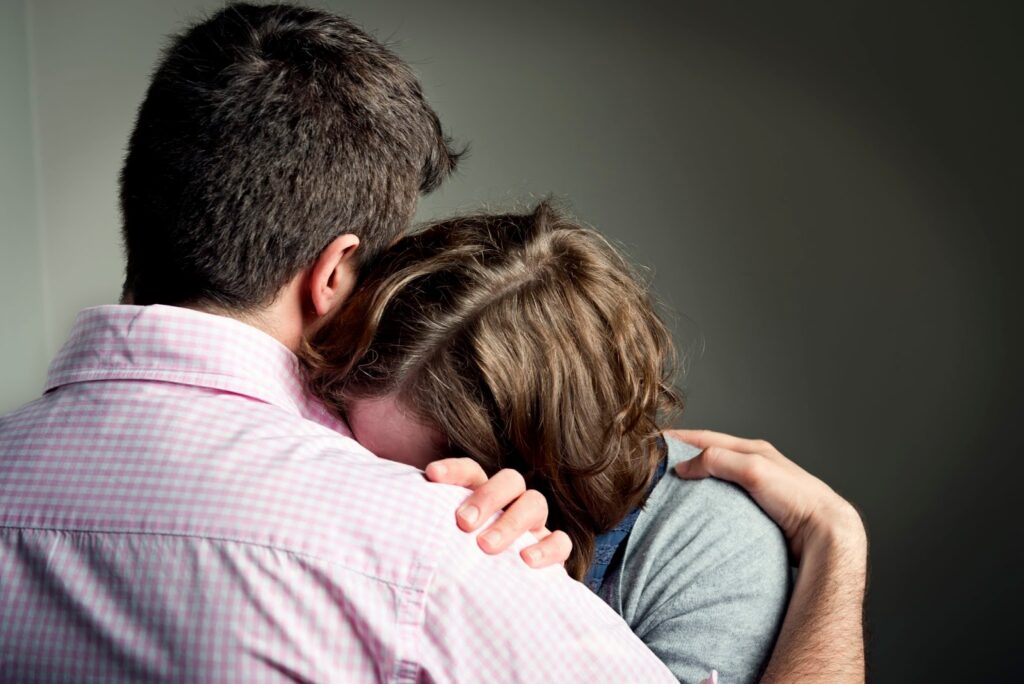
What is Grief and Loss?
Grief is a natural and complex emotional response to loss. Loss can take various forms, including the death of a loved one, the end of a significant relationship, or the loss of a job. It is a deeply personal experience that involves a range of emotions, such as sadness, anger, guilt, and confusion. Grieving is a process that individuals go through to come to terms with and adjust to the reality of their loss.
Understanding that grief is a unique journey for each person and that there is no prescribed timeline for healing is crucial. It involves navigating the emotional, psychological, and sometimes physical aspects of loss.
Symptoms of Grief and Loss
Recognizing the symptoms of grief is essential for individuals and those supporting them. Common signs include:
1. Intense Sadness: Overwhelming feelings of sadness, often accompanied by tearfulness.
2. Denial and Shock: Difficulty accepting the reality of the loss, sometimes leading to a sense of disbelief.
3. Anger: Feelings of anger directed towards oneself, others, or even the situation that caused the loss.
4. Guilt: Thoughts of guilt or regret related to the loss or things left unsaid or undone.
5. Physical Symptoms: Changes in appetite, sleep disturbances, fatigue, or other physical symptoms related to stress.
6. Social Withdrawal: Pulling away from social activities and relationships due to the emotional toll of grief.
How to Cope Up with Grief and Loss
1. Allow Yourself to Grieve: Acknowledge and accept your feelings without judgment. Grieving is a natural and necessary process.
2. Seek Support: Share your thoughts and feelings with friends, family, or a support group. Professional counseling can also provide valuable guidance.
3. Create Rituals: Establish meaningful rituals or ceremonies to honor and remember the person or thing you have lost.
4. Take Care of Yourself: Prioritize self-care, including adequate sleep, nutrition, and exercise to support your physical and emotional well-being.
5. Express Your Feelings: Find healthy outlets for expressing your emotions, such as journaling, art, or talking with a trusted confidant.
6. Set Realistic Expectations: Understand that grief is a process, and healing takes time. Be patient with yourself and allow for the ups and downs of the grieving journey.
7. Memorialize and Remember: Create a memorial or engage in activities that help you remember and cherish the positive aspects of what or whom you have lost.
What Will A Counsellor Do For You
Counselors play a pivotal role, providing a safe, supportive space for individuals to express grief. They assist in processing emotions, navigating grief stages, and finding healthy coping mechanisms for the profound impact of loss.
How We Help
Our grief counseling services guide individuals through the grieving process, offering support as they confront the challenges of loss.


Navigating the Stages of Grief
Grief is a nuanced journey, often marked by distinct stages that individuals may traverse differently. In our counseling sessions, we delve into the intricate nature of each stage: denial, anger, bargaining, depression, and acceptance. Recognizing that these stages are not rigid steps but a fluid process, we provide support tailored to the evolving emotional landscape.
Expressing and Processing Emotions
Grief unleashes a whirlwind of emotions, each demanding acknowledgment and understanding. In our counseling approach, we create a nurturing environment where individuals can openly express and process their emotions. Whether it’s the profound sadness that lingers or the fiery waves of anger, our counselors offer empathetic guidance, fostering emotional exploration and healing.
Developing Coping Strategies
The journey through grief requires a toolkit of coping strategies uniquely crafted for each individual. Our counselors collaborate with individuals to identify and develop coping mechanisms that resonate with their specific needs. From therapeutic techniques and mindfulness practices to tangible actions like journaling, we aim to empower individuals with effective tools for navigating the complexities of grief.
Honoring and Remembering Loved Ones
Acknowledging the enduring impact of loved ones is integral to the healing process. Our counselors assist individuals in creating meaningful rituals and memorializing events that celebrate the lives of those they’ve lost. By fostering positive legacies, we aim to help individuals find solace in cherishing memories and preserving the essence of their loved ones.
Supporting Life Adjustments
Grief often necessitates adjustments to various facets of life. Our counseling services extend beyond immediate bereavement, aiding individuals in adapting to a changed reality. Whether it involves career transitions, alterations in living arrangements, or redefining personal goals, we provide guidance to ensure that life adjustments align with the evolving needs and aspirations of those navigating grief.
Finding Meaning in Loss
Beyond the pain lies an opportunity to find meaning in the experience of loss. Our counselors engage individuals in reflective conversations, encouraging them to explore the deeper layers of their grief journey. This existential exploration aims to uncover insights, foster personal growth, and pave the way for a renewed sense of purpose amid loss.
Conclusion
In conclusion, our grief counseling services are crafted to offer comprehensive and nuanced support throughout the intricate process of grieving. By addressing the stages of grief, facilitating the expression and processing of emotions, developing personalized coping strategies, honoring and remembering loved ones, supporting life adjustments, and finding meaning in loss, our counselors strive to guide individuals toward healing, resilience, and a renewed sense of purpose.
